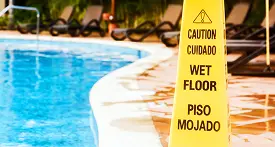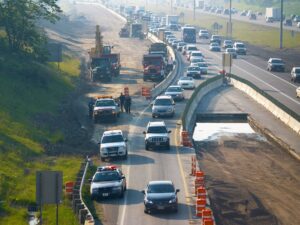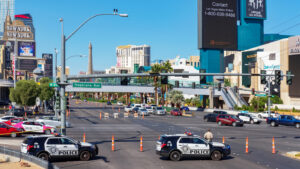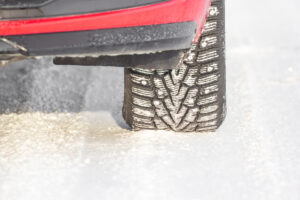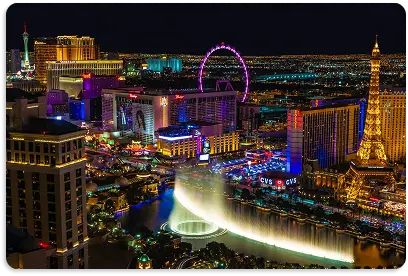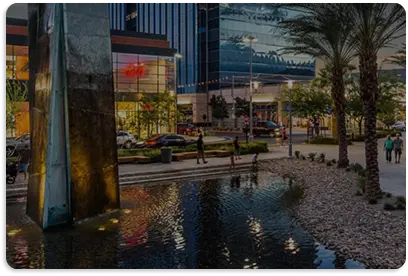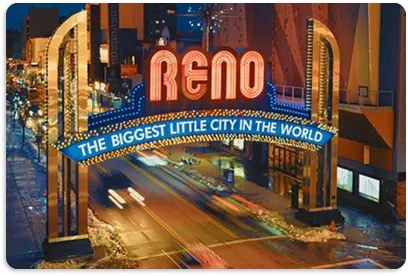In recent years, companies like Uber and Lyft have emerged as strong competitors to traditional taxi services. Their “rideshare” model is built around independent contractors with their own cars connecting to riders through an app.
Unfortunately, the lack of an employee-employer link between rideshare drivers and rideshare companies makes the process of taking legal action uniquely complex, especially when you do not have the support of a reputable Reno rideshare accident lawyer.
Help from a Reno car accident lawyer with Shook & Stone Injury Lawyers, with 150+ years of combined experience, can be key to getting the most compensation possible and often to getting any money at all from insurance or a third-party lawsuit.
What to Do After a Rideshare Accident
The hours after a crash can be confusing, especially when a rideshare driver is involved. Your actions during this time can directly impact your ability to recover compensation. Taking the right steps helps preserve key evidence, confirm liability, and protect your legal rights from the beginning.
Call 911 and Stay at the Scene
Always call 911 to report the crash, even if the damage seems minor. A police report provides an official record of what happened and may document who was at fault. Staying at the scene also ensures that your version of events is included in the investigation.
Gather Key Information From the Driver and App
Collecting key details while you are still at the scene gives your case a stronger foundation. This information can help verify who was driving, whether they were working at the time, and how to connect your injuries to the crash. Be sure to gather the following before leaving the scene:
- Name of the rideshare driver
- Contact information for the driver
- Vehicle make, model, and license plate number
- Screenshot of the app showing your trip details
- Name of the rideshare company (Uber, Lyft, etc.)
- Insurance information from the driver
- Confirmation of whether the driver was logged into the app
- Names and contact details for other passengers
- Names and contact details for other drivers involved
- Date and time of the crash
- Police report number, if available
- Name and badge number of the responding officer
Document the Scene With Photos and Witness Details
Photos can be some of the most persuasive evidence in a rideshare case. Take pictures of vehicle damage, road conditions, traffic signs, and any injuries you suffered. If anyone saw the crash happen, ask for their name and contact information before they leave the scene.
Speak With a Reno Rideshare Accident Attorney Before Speaking to Insurance Adjusters
Once a crash is reported, you may get calls from both the rideshare company’s insurer and the driver’s personal insurance provider. It may seem harmless to answer a few questions, but your words could later be used to dispute your claim or reduce your compensation. These companies are not calling to help you. They are trying to limit what they have to pay out.
Your Reno personal injury lawyer with Shook & Stone Injury Lawyers can step in to handle those conversations so you do not have to worry about saying the wrong thing.
From the moment you reach out, our job is to protect your best interests, gather the right evidence, and build a case that supports the full value of your claim. The earlier you involve us, the more control you have over the outcome.

Common Causes of Rideshare Accidents in Reno
Rideshare drivers are constantly pressured to accept new rides, meet pickup times, and navigate traffic in unfamiliar areas while keeping passengers happy.
These demands make ridesharing work more unpredictable and distracting than typical driving. When things go wrong, it is often due to factors unique to the rideshare experience.
App-Related Distractions and Navigation Errors
Rideshare apps require constant interaction. Drivers are expected to monitor route updates, accept or reject requests, and communicate with passengers, all while moving through traffic. This kind of multitasking pulls their focus away from the road and increases the chances of a crash.
Navigation systems can also contribute to the problem. Some drivers follow GPS instructions without checking their surroundings, leading to sudden turns, missed signals, or unsafe lane changes.
When these mistakes cause a collision, passengers and other drivers may be left dealing with serious injuries and complex liability questions.
Drowsy Driving and Excessive Hours Behind the Wheel
Many rideshare drivers work long shifts or split their driving between multiple platforms to earn enough income. This often means staying on the road late at night or during peak traffic hours. Fatigue can creep in slowly but still affect reaction time, judgment, and the ability to stay alert.
Because drivers are classified as independent contractors, there are fewer rules about how long they can stay behind the wheel. Some may push through fatigue to complete just one more ride, especially if they are close to a bonus or incentive.
These choices put passengers and other motorists at risk, even when the driver never intended to cause harm.
Poor Vehicle Maintenance by Rideshare Drivers
Rideshare companies expect their drivers to keep their vehicles in safe working condition, but there is little to no oversight by the companies themselves.
Bald tires, worn brakes, faulty headlights, and engine problems can all contribute to serious crashes. When a driver skips routine maintenance or ignores warning signs, passengers and others on the road are the ones who suffer.
These mechanical failures can make it harder to stop, reduce visibility at night, or cause a vehicle to stall unexpectedly. Unlike commercial carriers, rideshare drivers often pay for their own repairs, which may lead to delays in necessary service. If poor maintenance played a role in your accident, our Reno rideshare accident lawyers will work to hold the driver and possibly the rideshare company accountable for what happened.
Passenger Distractions and Unfamiliar Routes
Rideshare drivers often pick up passengers who are intoxicated, emotional, or talkative. These interactions can be distracting, especially in small vehicles or late at night. A single moment of diverted attention can lead to a missed signal, a sharp swerve, or a rear-end collision.
Unfamiliar neighborhoods and difficult-to-find addresses add to the stress. When drivers are focused on locating a drop-off point or navigating a confusing area, they may miss important road signs or traffic signals. These situations happen fast and often leave the injured party unsure of who is at fault or what to do next.
How Liability Is Determined in Rideshare Accidents
The fact that most rideshare drivers are categorized as independent contractors can make assigning liability substantially more difficult than the average car crash. Having an experienced rideshare accident attorney in Reno in your corner can help you avoid being exploited by insurance providers who act in bad faith or drivers trying to shift blame onto victims.
Establishing the Rideshare Driver’s Role at the Time of the Crash
One of the first steps in a rideshare accident case is figuring out what the driver was doing at the time of the crash.
Whether the driver was offline, waiting for a ride request, or actively transporting a passenger can completely change which insurance policy applies. Rideshare companies only provide coverage when their app is on and the driver is engaged in work-related activity.
Proving Fault Through Evidence and Investigation
Fault in a rideshare crash is not always obvious. Proving who caused the accident requires evidence from multiple sources, including the rideshare app, vehicle data, and third-party witnesses. We collect crash reports and information from the car’s event data recorder (EDR), review dashcam or surveillance footage, and look at the driver’s history on the platform.
If multiple vehicles were involved, fault may be split between two or more parties according to Nevada’s modified comparative negligence rules outlined by NRS § 41.141. For example, the rideshare driver may have been distracted by the app while another driver ran a red light.
Each piece of evidence helps clarify who contributed to the crash and how fault should be assigned. Our Reno rideshare accident lawyers review every angle to hold the right parties accountable.
When the Rideshare Company May Share Responsibility
Although rideshare drivers are classified as independent contractors, the companies behind them are not always off the hook. If Uber or Lyft hired someone with a dangerous driving history or failed to remove a driver with repeated safety complaints, they may be responsible for what happened.
These companies also set policies that may contribute to risky driving, such as app alerts or performance-based incentives. Holding a rideshare company liable is not the same as suing an employer directly.
These claims often involve arguments about driver screening, platform safety rules, and how the company responded to known risks. We build these cases by showing how the company’s actions or inaction allowed a dangerous situation to unfold.
Free Consultation We’ll help you win the benefits you need to get your life back.
Compensation Available in a Rideshare Accident Claim
Identifying where compensation will come from after a rideshare crash is not always straightforward. Multiple policies may be involved, and the rideshare company’s coverage depends entirely on whether the app was active. Knowing how to access the right coverage is just as important as proving who was at fault.
Filing a Claim Through the Rideshare Company’s Insurance
When a rideshare driver is logged into the app, the company provides liability coverage that may apply to your injuries. If the driver is on their way to pick up a passenger or actively transporting someone, that policy typically includes up to $1 million in insurance coverage.
We help determine the driver’s status at the time of the crash to confirm which policy applies.
Pursuing a Claim Against the Rideshare Driver’s Personal Policy
If the driver is not logged into the app, only their personal insurance will be applied. This can make it more difficult to recover full compensation, especially if the coverage limits are low.
Your rideshare accident attorney in Reno will review every detail to make sure no potential source of recovery is overlooked.
Using Your Own Insurance Policy for Coverage
If the at-fault driver was uninsured, underinsured, or fled the scene, your own policy may provide support through uninsured/underinsured motorist (UM/UIM) coverage, as described under NRS § 690B.020. You may also be able to recover through MedPay or other add-ons depending on your plan. These policies can help cover immediate expenses while your case is being resolved.
Filing a Third-Party Claim When Other Factors Contribute
Not every rideshare crash is caused solely by the rideshare driver. Hazardous road conditions, mechanical failure, or another driver’s actions may have played a role. In these situations, we explore third-party claims to expand your options for full and fair compensation.
Types of Damages You May Be Able to Recover
After a rideshare accident, many people focus only on their immediate medical bills, but your losses may reach far beyond that. The more extensive your damages, the more likely you are to recover fair compensation.
Here are several types of damages you may be able to recover in a rideshare accident case:
- Emergency room and ambulance costs
- Hospitalization and surgical procedures
- Ongoing physical therapy and follow-up care
- Prescription medication and medical devices
- Missed paychecks due to injury-related time off
- Loss of future earning capacity or job retraining needs
- Anxiety, depression, or trauma related to the crash
- Loss of enjoyment of life or daily independence
- Transportation or out-of-pocket expenses related to treatment
Every rideshare case is different, and the losses you experience may not be obvious right away. We work with medical experts, vocational analysts, and your care team to document the full impact of the crash.
This way, your claim reflects everything you have been through, not just the number an insurance company wants to assign.
Contact a Rideshare Accident Attorney in Reno for Help Today
Put together, all of the factors mentioned above mean that multiple parties may hold liability for an Uber/Lyft/rideshare accident in Reno. Multiple insurance companies may also be involved, and they will all try to minimize their own liability at the expense of the injured people trying to recover.
Needless to say, this is an exceptionally complicated situation that can be difficult for an injured person to handle on their own, especially when dealing with serious physical injuries from a wreck.
Fortunately, you have assistance available from a capable and compassionate rideshare accident lawyer in Reno from Shook & Stone Injury Lawyers with a track record of achieving favorable results from many similar cases in the past.
Call Shook & Stone today to discuss your case with one of our dedicated legal professionals.


